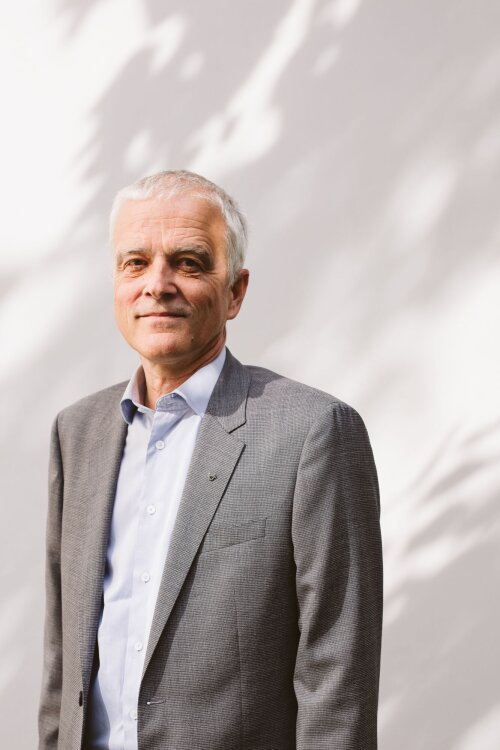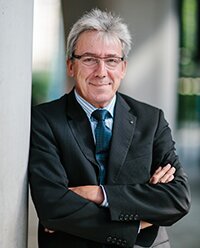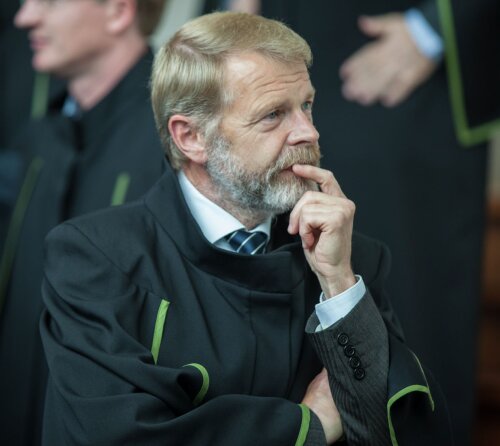The University of Antwerp is a young university which has its origins in three separate institutions.
- UFSIA (Universitaire Faculteiten Sint-Ignatius Antwerpen)
- RUCA (Rijksuniversitair Centrum Antwerpen)
- UIA (Universitaire Instelling Antwerpen)
UFSIA
UFSIA was founded in 1965 when the Sint-Ignatius Handelshogeschool was converted into a university. The Jesuits had founded the Sint-Ignatiusinstituut for secondary education in 1852 before going on to offer higher education under the name of the 'Ecole supérieure de Commerce' in 1902. This later became the Sint-Ignatius Handelshogeschool, or College of Commerce. The Handelshogeschool began offering candidate degrees in the Faculties of Arts (including Law) and Political and Social Sciences in 1959.
RUCA
RUCA was founded in 1965 with staunch support from the Mayor of Antwerp at that time, Lode Craeybeckx. This new university was itself constructed around three existing institutes - the Rijkshandelshogeschool, the Koloniale Hogeschool and the Hoger Instituut voor Vertalers en Tolken (HIVT) - and was housed in the buildings of the former Koloniale Hogeschool near Middelheim Park.
UIA
UIA was established in 1971 and offered Master and PhD-level courses for most of the fields of study provided at UFSIA and RUCA. Antwerp University Hospital (UZA) was also founded at around the same time. UIA introduced its innovative educational policy in 1971. This policy was based on a trimester system (now a semester system), a credit system, limited numbers of lectures and an emphasis on active education and self-study, a system which is now widespread throughout Flanders.
Milestones
1852
In 1852, two commercial institutes were founded in Antwerp: the Rijkshandelshogeschool (the State School of Economics) and the Sint-Ignatius Handelshogeschool (the Sint Ignatius School of Economics). Initially geared to business and commerce, they helped to make Antwerp a world centre for commerce and culture.
1965
In 1965, the two commercial institutes gained university status and became Faculties for Economic Science. Studies in Medicine at undergraduate level were added to the Rijkshandelshogeschool, together with the first and second year of the Science courses, and renamed RUCA (Rijksuniversitair Centrum Antwerpen). The Sint Ignatius School of Economics expanded and offered first and second year courses in Arts and Social Sciences, and Law. In 1965, it was officially renamed UFSIA (Universitaire Faculteiten Sint-Ignatius te Antwerpen).1971In 1971, the third institute, the UIA (Universitaire Instelling Antwerpen) was founded. It offers second cycle studies to students from UFSIA and RUCA, post-graduates and PhD programmes.
1973
In 1973, these three institutions began to cooperate as a confederation under the name 'University of Antwerp' - 'UA' (Universiteit Antwerpen). Committed to closer cooperation, in 1995 an act of the Flemish parliament secured this cooperation by giving the UA a confederate structure. The confederation is governed by the Board of the UA and is directed by a Vice-Chancellor.
2000
Professor Francis baron Van Loon is the University of Antwerp's rector from 2000 until 2008.
2003
In October 2003, they were finally brought together to form the University of Antwerp we know today.
2008
The late professor Alain Verschoren was the University of Antwerp's rector from 2008 until 2016.
2013-'14
In academic year 2013-'14, the university welcomed two new faculties.
- Artesis University College Antwerp's courses on product development and architecture were integrated in the Faculty of Design Sciences at the University of Antwerp.
- Similarly, the engineering programmes at Karel de Grote University College and Artesis University College Antwerp merged with the Faculty of Applied Engineering.
- Translation and interpreting courses joined the Faculty of Arts, while rehabilitation sciences and physiotherapy were incorporated in the Faculty of Medicine and Health Sciences.
2016
Professor Herman Van Goethem, lawyer and historian, started as the new rector of the University of Antwerp on 1 October 2016. His first term of office ran until 2020. His second term ran until 2024.
2024
Professor Hedwig Leirs began his first term of office as the new rector of UAntwerp.
The rector
The Board of Governors appoints the rector for a four-year period, choosing from a list proposed by an electoral college made up of individuals from all of the university's levels.
On 1 september 2024, Professor Hedwig Leirs began his term of office as the new rector of UAntwerp. He is the fourth rector of the unified University of Antwerp after Professors Herman van Goethem, Francis Van Loon and Alain Verschoren.
Rector 2016-2024: Professor Herman van Goethem

Herman van Goethem, specialised in law and history, was the University of Antwerp's rector from 2016-2024.
Rector 2008-2016: Professor Alain Verschoren

Professor Alain Verschoren was the University of Antwerp's rector from 2008 until 2016.
He was also chair of the Antwerp University Association (until autumn 2013), the umbrella association which incorporates the University of Antwerp and four university colleges in Flanders' biggest city. Between 2002 and 2008, Alain Verschoren was chair of the University of Antwerp's Board of Governors.
Alain Verschoren held a Master in Mathematics (University of Antwerp, 1976) and obtained his PhD in 1979.
Verschoren was a full professor in the University of Antwerp's departments of Mathematics and Computer Science since 1986. His fields of research included non-communicative algebraic geometry, artificial intelligence, genetic algorithms, bioinformatics and proteomics. Verschoren wrote over 150 books and research papers, which have been published in internationally recognised journals.
He was a visiting professor at over twenty universities.
He passed away in 2020 at the age of 66.
Rector 2000-2008: Professor Francis Van Loon

Francis van Loon was the University of Antwerp's rector from 2000 until 2008.